
Adobe Premiere Pro 2023 feature introduction
The most recent version of Adobe Premiere Pro 2023 is a professional video editing program that supports a wide number of video codecs and offers a comprehensive range of production, post-production, and video editing features.
Additionally, one of the most widely used video editing programs available is the Premiere Pro series from Adobe. Nearly all video editing requirements are met by its robust features and extensive editing system. As such, it’s used by a lot of editors and makers of videos. Premiere Pro is a tool I use professionally for eating.
The following are Adobe Premiere Pro 2023’s top ten features:
- Users may increase productivity by trimming and editing films more rapidly with the aid of new automated tools.
- Users may more quickly do multi-angle editing and post-production with the help of the new multi-camera editing tool, which can
- synchronize the shooting footage of various cameras.
- Users can now effortlessly add excellent background music and sound effects to movies with the addition of some new sound effects
- and music libraries.
- Users may now more precisely alter the hue and tone of films with the addition of a new color correction tool.
- enhances the speed and efficiency of software rendering by supporting GPU hardware acceleration.
- Users may now more easily make and post-produce 360-degree films thanks to the additional improvements made to the 360-degree video functionality.
- More HDR video compatibility has made it easier for users to apply high dynamic range special effects to videos.
- Enhancement of 4K and 8K video optimization boosts the effectiveness and caliber of video editing and rendering.
- More compatibility for AR movies has made it easier for consumers to generate and edit augmented reality videos.
- Users may now more easily combine and post-produce Premiere Pro films with content from other Adobe programs thanks to improved interaction with other Adobe technologies.
The majority of Adobe products, including Photoshop, Illustrator, and Lightroom, has interfaces available in Traditional Chinese, so Chinese users don’t have to worry about their use being hindered by language difficulties. But the most popular editing program on the planet, Premiere Pro, does not officially provide it directly. Customary installation bundle in Chinese.
Thankfully, though, we can utilize the Traditional Chinese installation package to switch Premiere Pro’s operational interface to Traditional Chinese, or even a dual-language version of Traditional Chinese + English, so that it may also be used for teaching or reading foreign materials. Conveniently, comparisons may be done simultaneously.
This page offers download links for Adobe Premiere Pro 2023 in addition to the Traditional Chinese language bundle. You may use and install Adobe Premiere Pro 2023 right now, using the Traditional Chinese language interface by following the directions in this tutorial. You may also learn how to obtain Traditional Chinese + English by following these instructions. Presentation of an interface in two languages.
Adobe Premiere Pro 2023 information
- Adobe Premiere Pro 2023 is the program name.
- [Language used in software]: Traditional Chinese/Many languages
- [Size of file]: 8.29 GB
- [Format of compression]: ZIP
- [Included programs]: Traditional Chinese language bundle, Premiere Pro 2023 installation file
- [Requirements for systems]: Windows 10, 11,
- [Download location]: To download, click this link.
Adobe Premiere Pro 2023 installation steps
STEP 1
Run the installation program named [Set-up.exe] located in the “Adobe Premiere Pro 2023” folder.
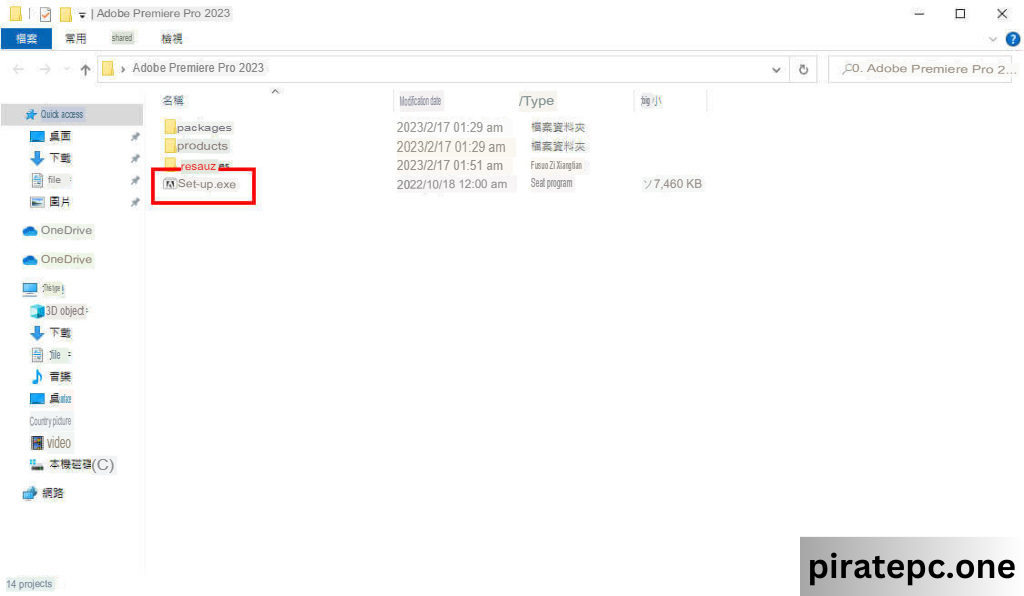
STEP 2
It’s not necessary to work with the language. Simply use English by default. Later on, you will set Chinese. You can change the position to suit your preferences. Click [Continue] and use the default if there is nothing exceptional.
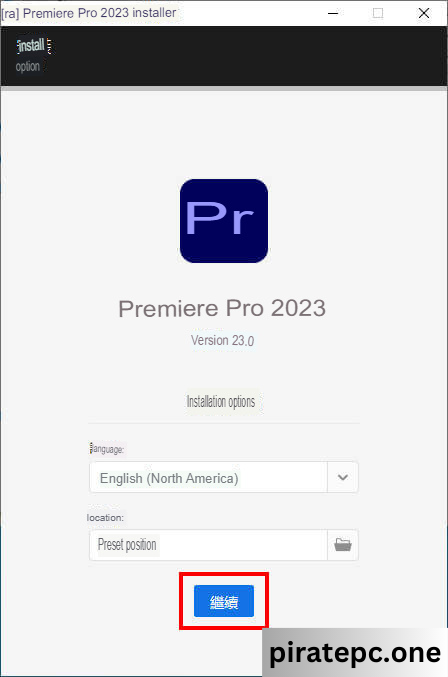
STEP 3
Wait for the installation to complete.
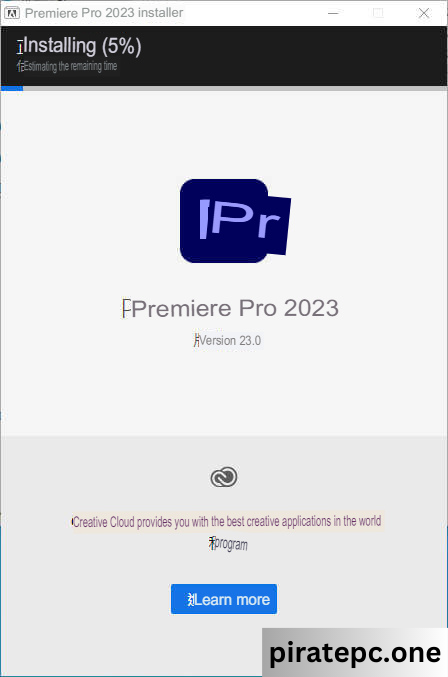
STEP 4
A completion notice will show up when the installation is finished; click [Close].
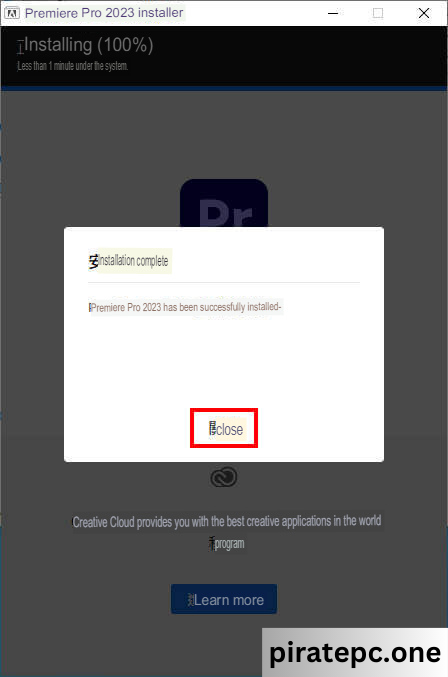
Language traditionalization in Adobe Premiere Pro 2023, with dual language options for Chinese and English
STEP 1
Once the installation is finished, choose [Open file location] from the context menu when you right-click the Adobe Premiere Pro 2023 icon on the desktop.
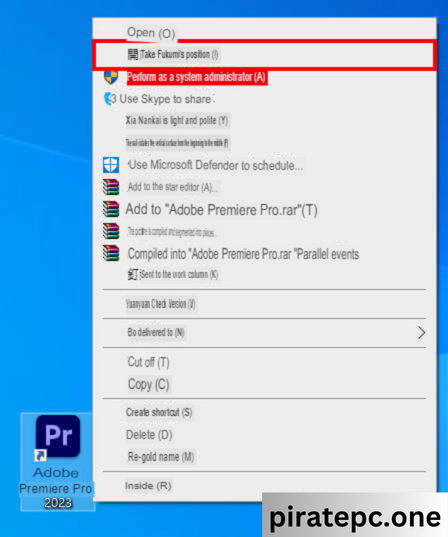
STEP 2
Go to the “Dictionaries” folder.
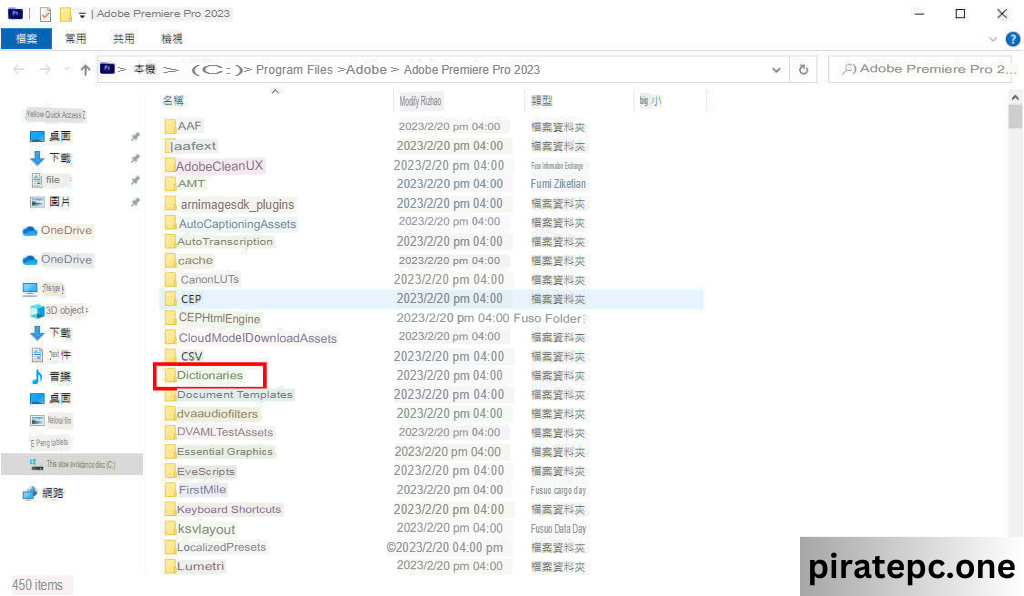
STEP 3
Replace the original file by dragging the “zh_TW” folder from the downloaded folder here.
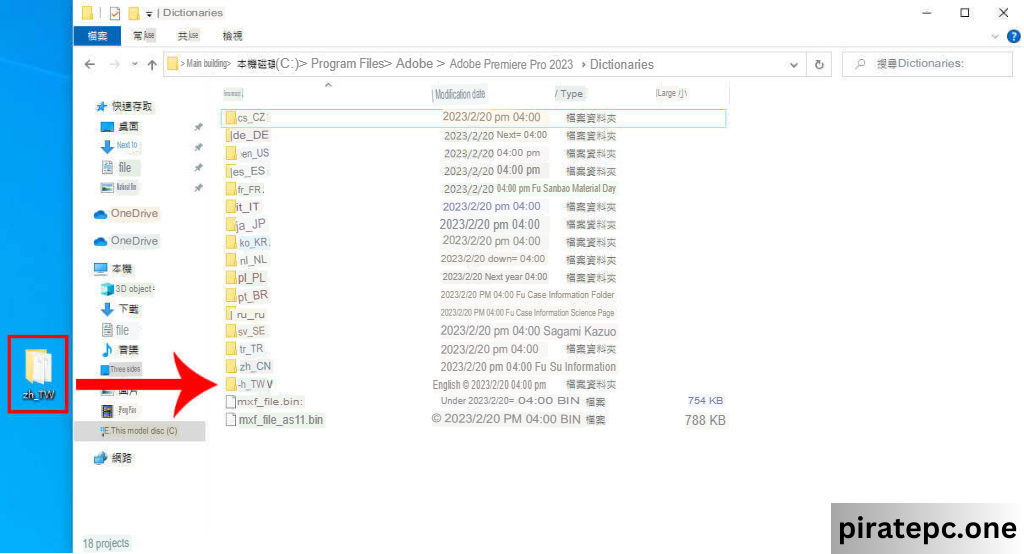
STEP 4
Check “Apply to all current projects” and click “Continue”.
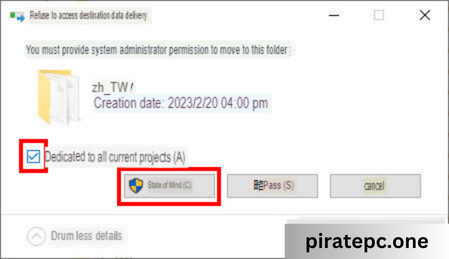
STEP 5
After overwriting, the original two files will become as follows.
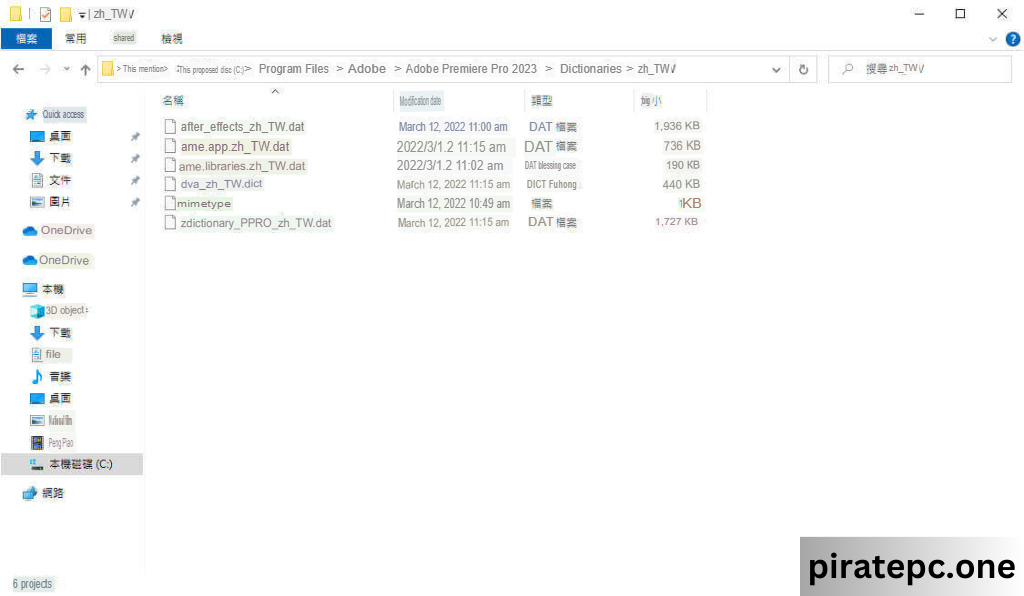
STEP 6
Then start Adobe Premiere Pro 2023.
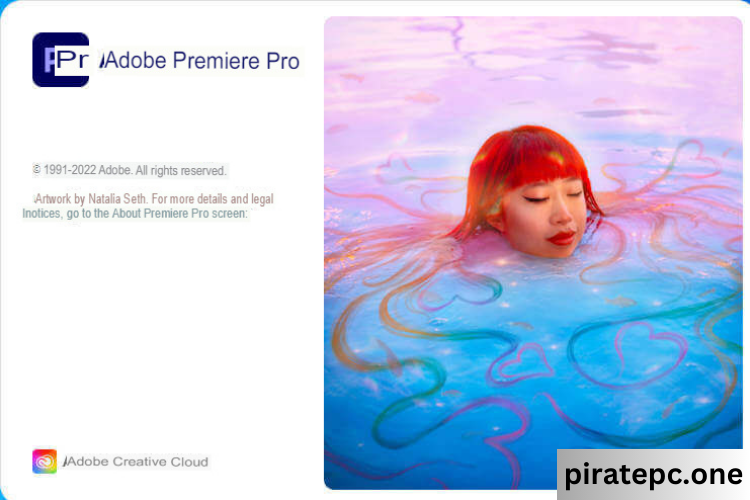
STEP 7
Click [New Project] on the left to open a new project.
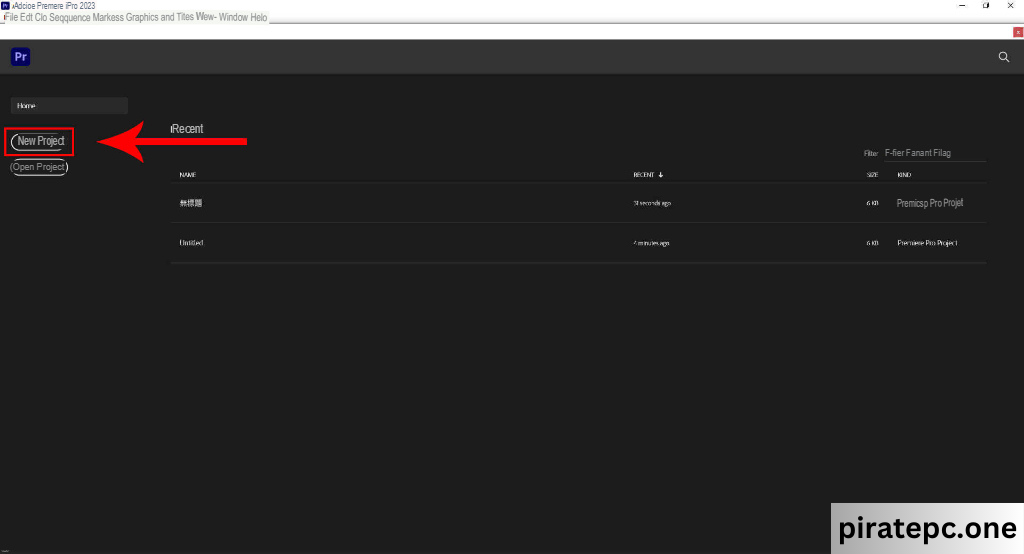
STEP 8
Click [Create] in the lower right corner.
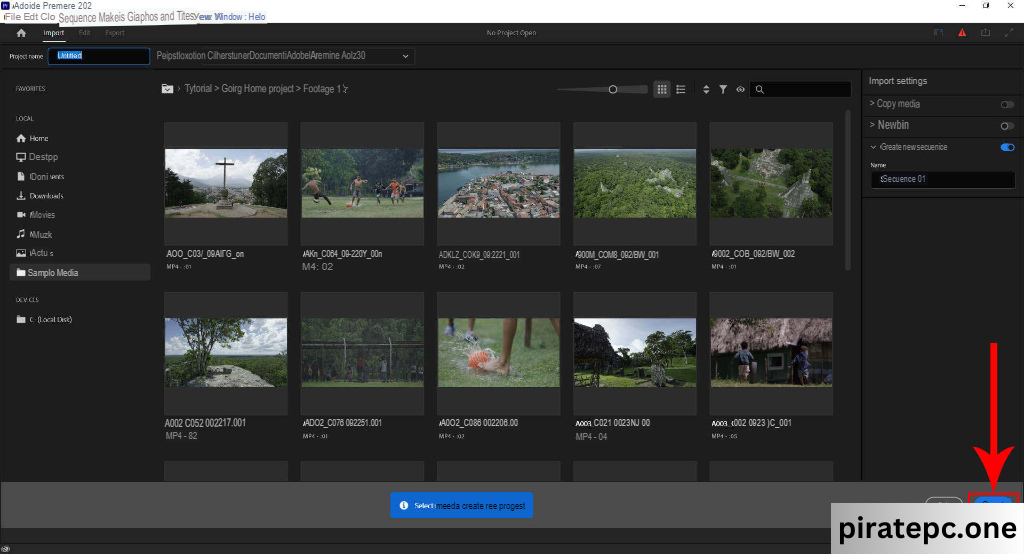
STEP 9
Next, use [Ctrl+F12] if you’re using a Windows computer. To get the most out of a laptop, you might need to install extra [Fn].
Once the Console control panel has been opened by using the shortcut key, click on the three horizontal lines that are adjacent to it to choose [Debug Database View].
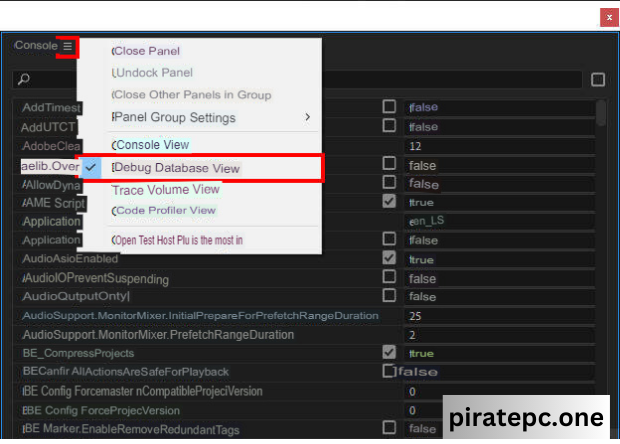
STEP 10
In the “ApplicationLanguage” line, replace the original [en_US] with [zh_TW].
Simply type [en_US] to return to the English setting. Enter [ja_JP] to convert it to Japanese, and so forth.
Keep in mind that the capitalization you supplied above needs to match exactly; if it doesn’t, it won’t work.
To switch the UI to Traditional Chinese, follow the instructions above.
Change the initial [false] check of the “Application Language Bilingual” below to [true] if you want the interface to show Traditional Chinese + English in dual language. Then, follow the instructions to display Chinese and English simultaneously.
*Another straightforward approach is given below in case you are unable to locate the two choices “ApplicationLanguage” and “Application Language Bilingual” here.
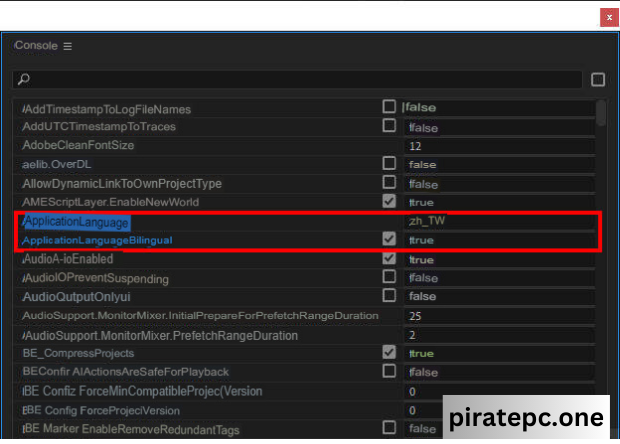
STEP 11
You don’t need to click Save or anything else after making the adjustments. Simply shut off the window and launch Adobe Premiere Pro 2023 again. The language used is either Traditional Chinese or Chinese plus English, as you shall discover! (This is how it appears in Chinese and English.)
You may still use it regularly if you don’t mind a minor error. There could be a few small elements, such [Graphics and Labels] in the top menu, that are not translated accurately into Chinese and English. However, this won’t interfere with how the product works.
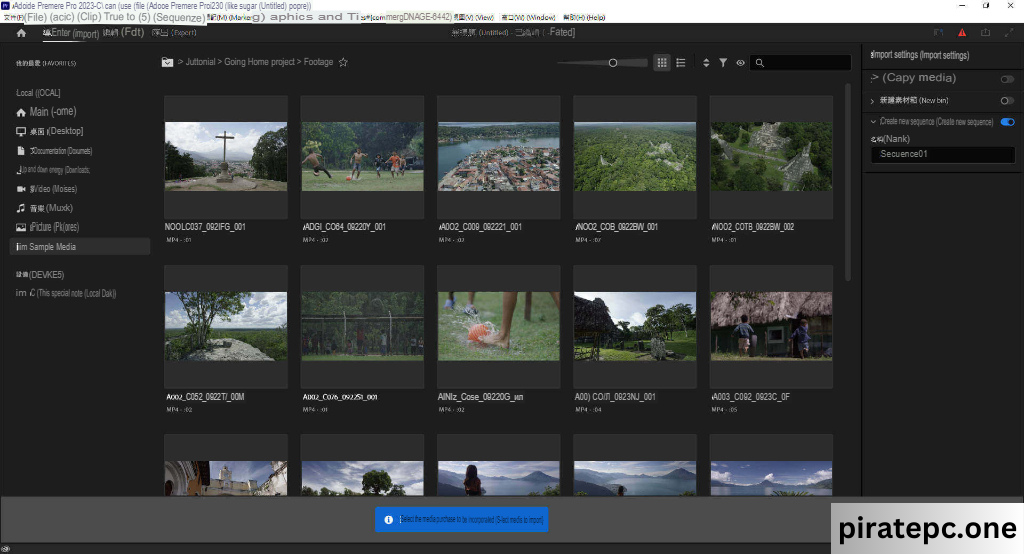
In the event that the ApplicationLanguage is not available during Traditional Chinese, what should I do?
STEP 1
To locate the file [application.xml], first navigate to the folder “C:\Program Files\Adobe\Adobe Premiere Pro 2023\AMT”.
To locate the “ATM” folder, you may “right-click” on the Pr icon on the desktop and select “Open File Location” to swiftly navigate to the root directory.
Then choose “Content” by doing a “right-click” on [application.xml].
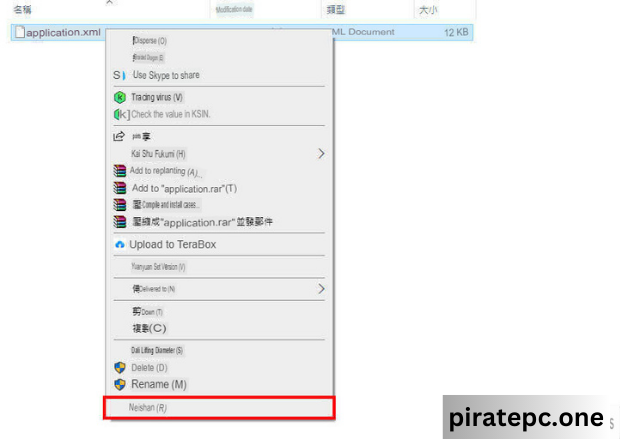
STEP 2
Select “Security” and click “Edit”.
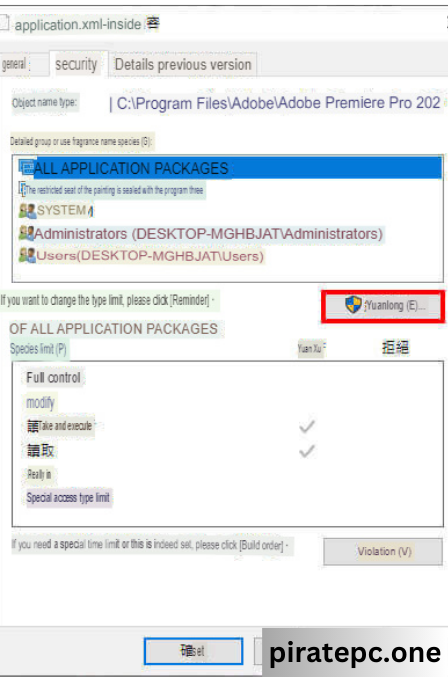
STEP 3
Select your user (use the default if you’re unsure which to use), tick [Full Control] underneath, and then hit [OK] twice.
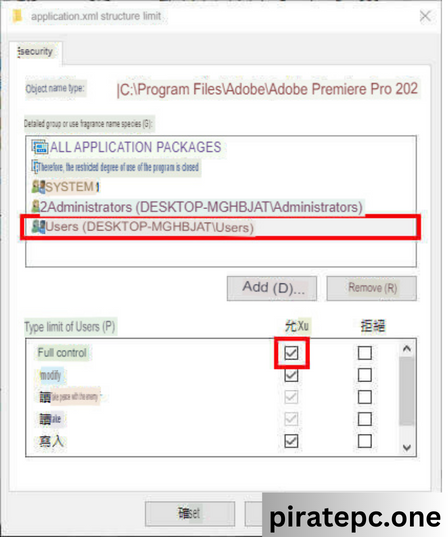
STEP 4
Next, click “right-click” on [application.xml] → “Open File” → “Notepad”.
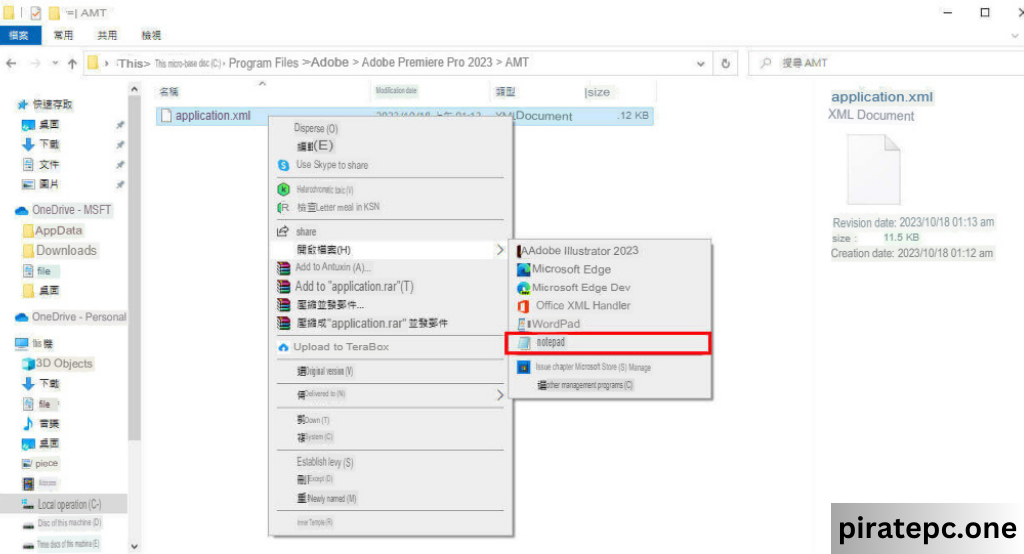
STEP 5
The current language is shown once “installedLanguages” has been located. “en_US” ought to be the default. Make this change to “zh_TW” from “en_US” and save it.
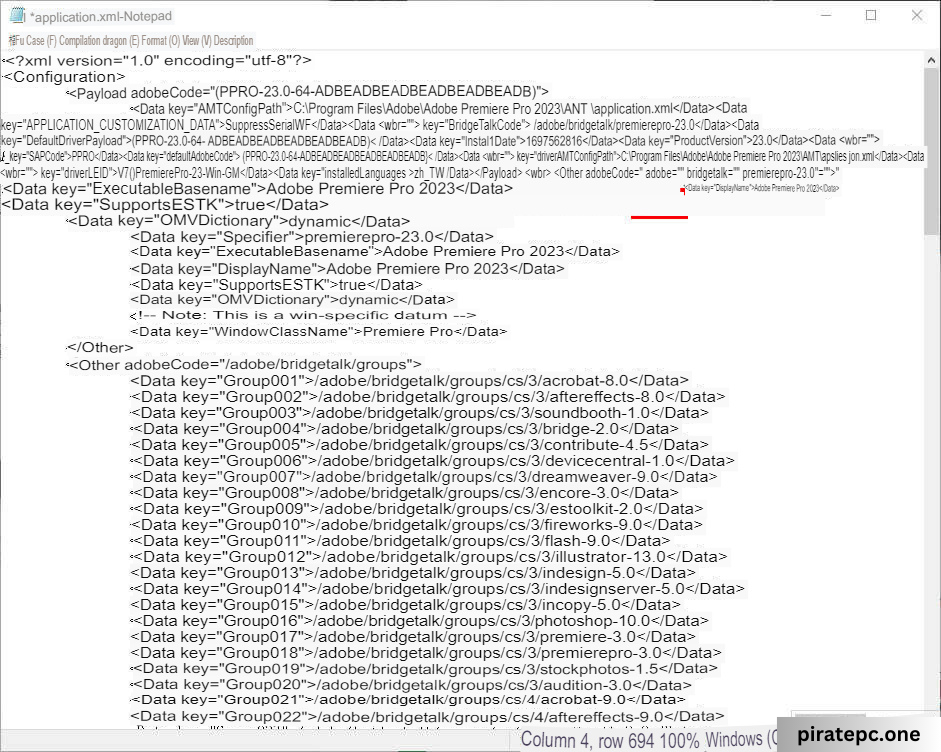
STEP 6
When you open Pr again, you will find that it has been changed to Traditional Chinese!
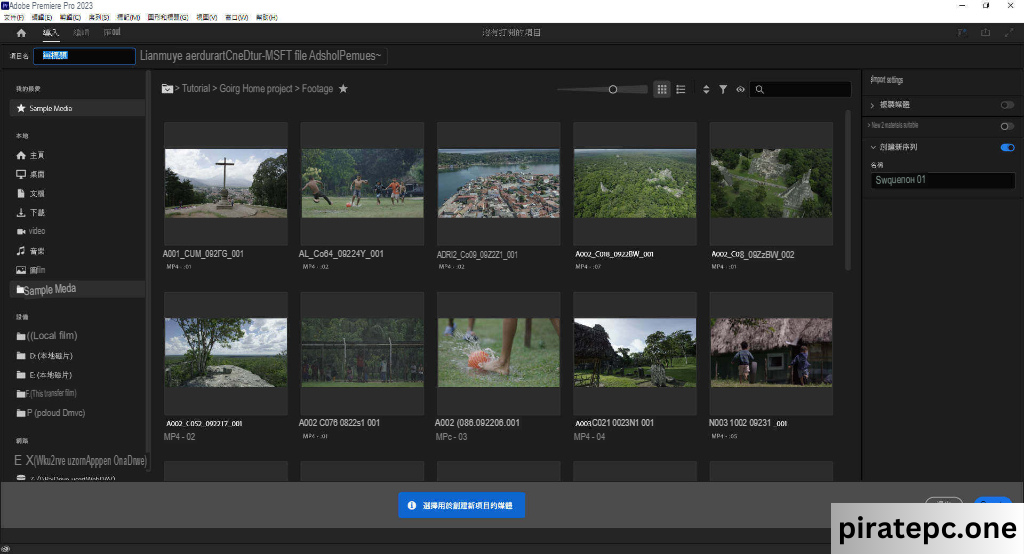
Adobe Premiere Pro 2023 Download
Adobe Premiere Pro 2024 Mac Link1
Adobe Premiere Pro 2024 Mac Link2
Password: 12345






